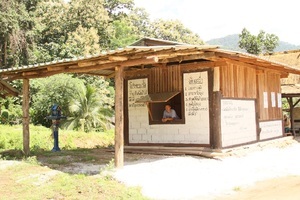Widespread Artemisinin resistance could wipe out a decade of malaria investment
17 April 2015

The appearance of artemisinin-resistant Plasmodium falciparum malaria in the Greater Mekong sub-region is a major threat to global health security, and would have a significant economic impact that may seriously undermine years of malaria investment, says Dr Tim France from the Asia Pacific Leaders Malaria Alliance in “The Roll Back Malaria (RBM) Partnership World Malaria Day blog series”.
Global malaria deaths have halved in the past decade. Still the disease kills over 500,000 people annually, and the majority of such deaths occur in Africa and among children under 5 years of age.
It is not the first time the world is experiencing an emergence of malaria treatment resistance. However, a global model developed by leading malaria experts from Thailand and the United Kingdom estimated that the economic impact of the widespread artemisinin resistance would be as severe as more than US$ 0.5 billion each year.
The overall health and economic costs of artemisinin resistance could be more than those described in the model, once additional side effects - such as possible termination of malaria elimination strategies and re-introduction of malaria to areas where it has been recently eliminated - are considered.
In order to prevent the spread of artemisinin resistance, artemisinin-resistant parasites in the Greater Mekong sub-region must be eliminated before it spreads, and active surveillance for resistant parasites in areas where they have not been previously found such as in Africa must be conducted intensively, says Dr France.
External financing has largely underpinned 15 years of malaria achievements in all affected regions. Reallocating that support to a consolidated set of countries and regions may have a dramatic effect on the pace and direction that artemisinin resistance spreads.
Further information
- Read the full blog from Dr Tim France
- Visit the Roll Back Malaria (RBM) Partnership World Malaria Day blog series
Photo by Dr.Tim France

